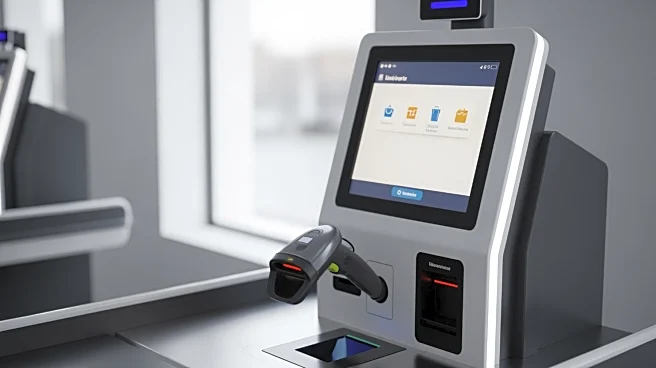What's Happening?
Adriana Rivas has released a new book titled 'How to Implement Self-Service Without Failing,' which provides a comprehensive guide for businesses considering the adoption of self-service checkouts. The book is designed to assist organizations in navigating
the complexities of implementing self-service systems, offering practical advice and real-world examples. Rivas emphasizes the benefits of self-service, such as increased efficiency and cost savings, while addressing common concerns like staff and customer acceptance and technical challenges. The book is targeted at decision-makers in various types of businesses, from small stores to large corporations, and aims to simplify the process of integrating self-service technology.
Why It's Important?
The introduction of self-service checkouts has transformed retail operations, offering faster service and reducing labor costs. Rivas' book is significant as it provides a roadmap for businesses that have yet to adopt this technology, potentially leading to increased competitiveness and customer satisfaction. By addressing both the benefits and challenges of self-service systems, the book equips business leaders with the knowledge needed to make informed decisions. As self-service technology becomes more prevalent, understanding its implementation is crucial for businesses aiming to stay ahead in the market.
What's Next?
Businesses that choose to implement self-service checkouts following the guidance in Rivas' book may need to form dedicated project teams comprising IT and operations personnel to address the technical and operational aspects of the transition. This strategic approach could lead to smoother integration and better outcomes. As more companies adopt self-service technology, there may be increased demand for related services and products, potentially influencing market trends and consumer expectations.
Beyond the Headlines
The adoption of self-service technology raises ethical and cultural considerations, such as the impact on employment and customer interaction. While self-service systems can enhance efficiency, they may also reduce the need for human staff, prompting discussions about the future of work in retail. Additionally, businesses must consider how these systems affect customer experience and ensure that technology does not compromise service quality.















